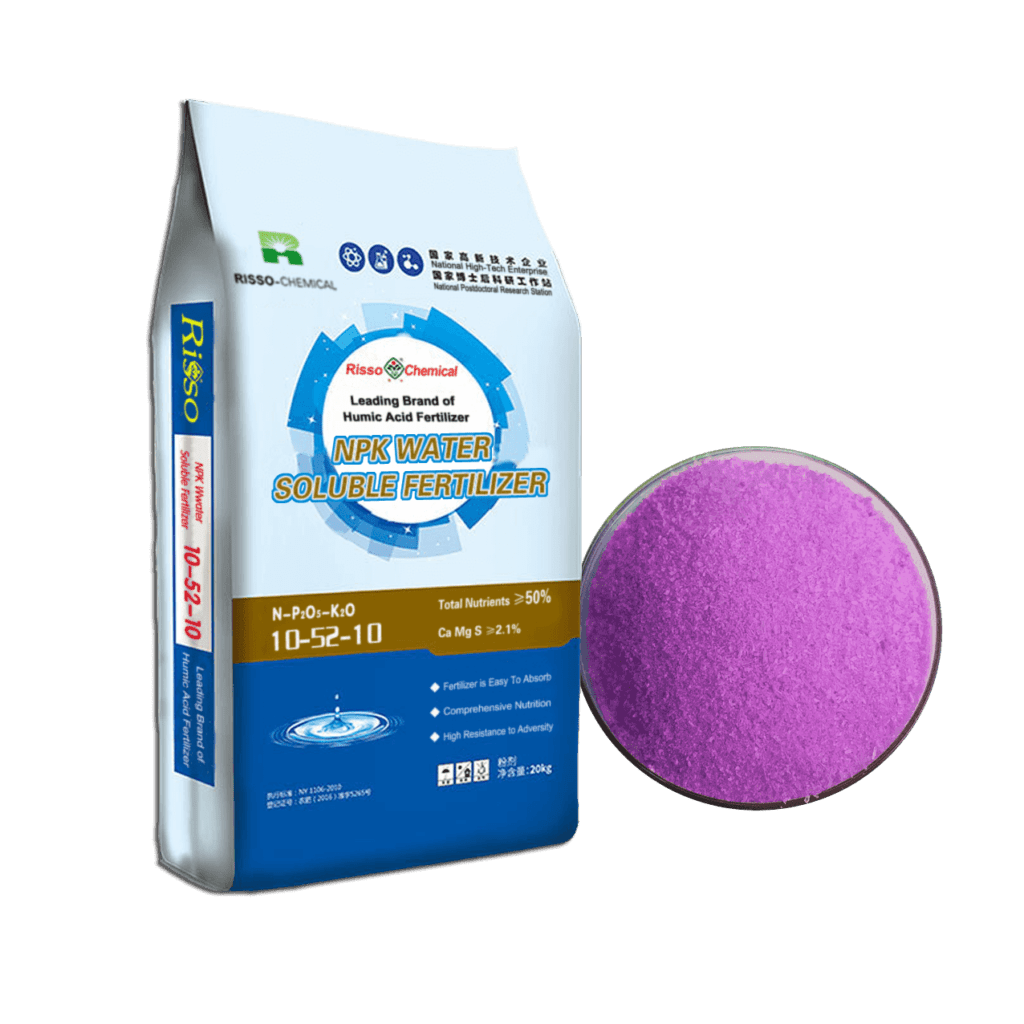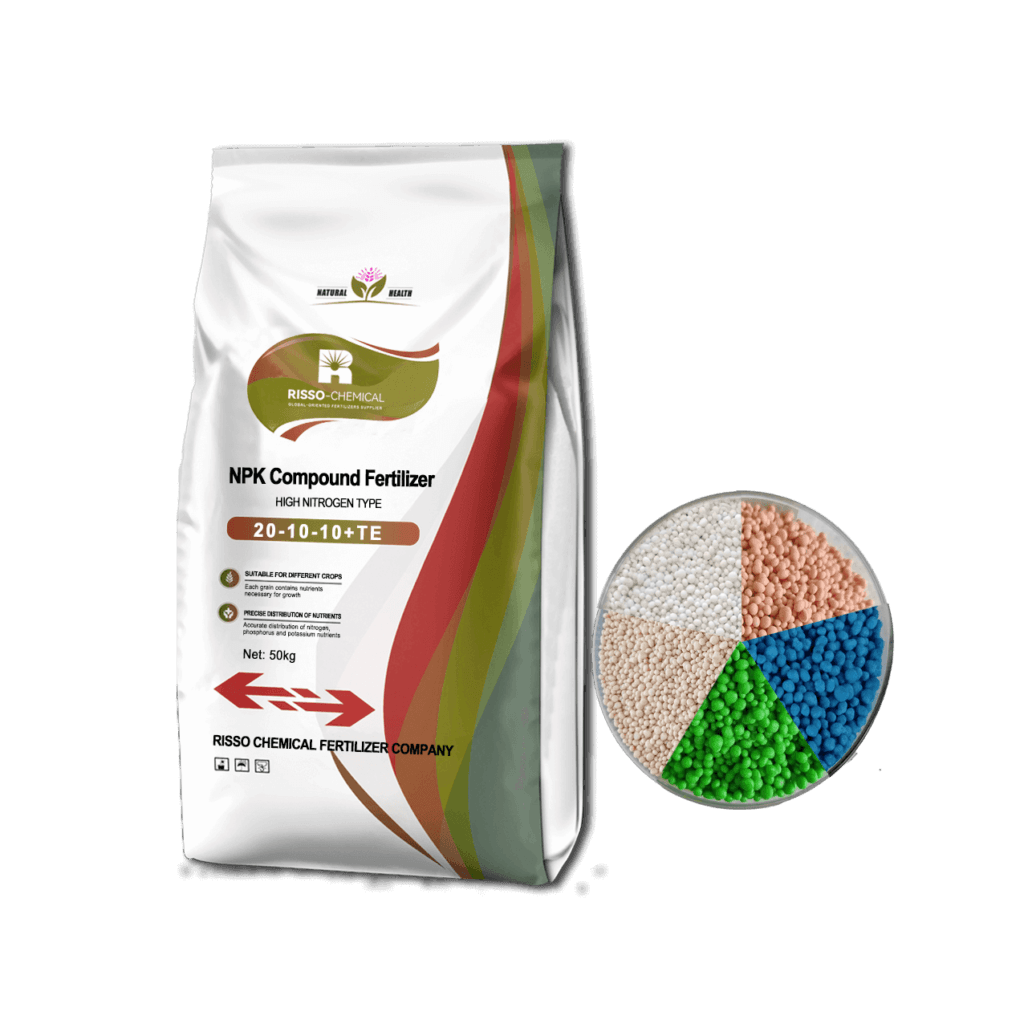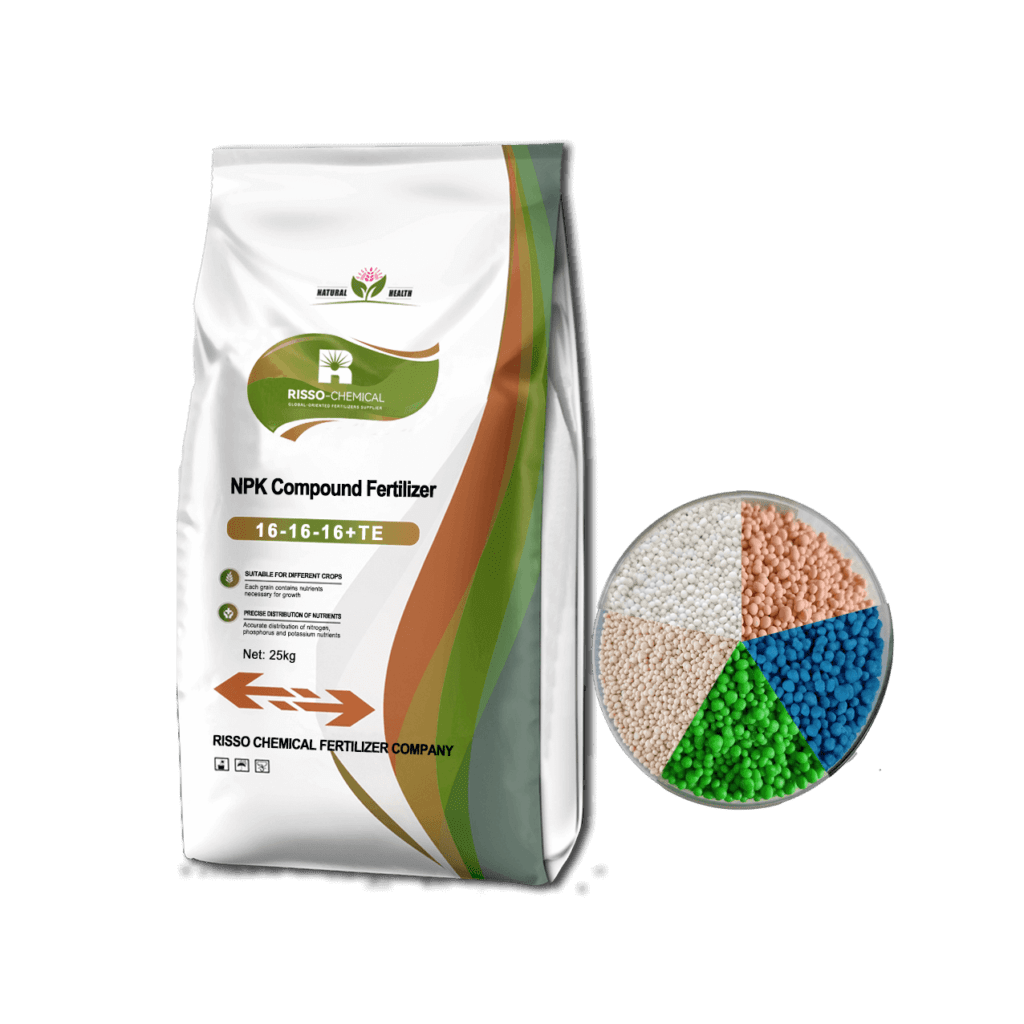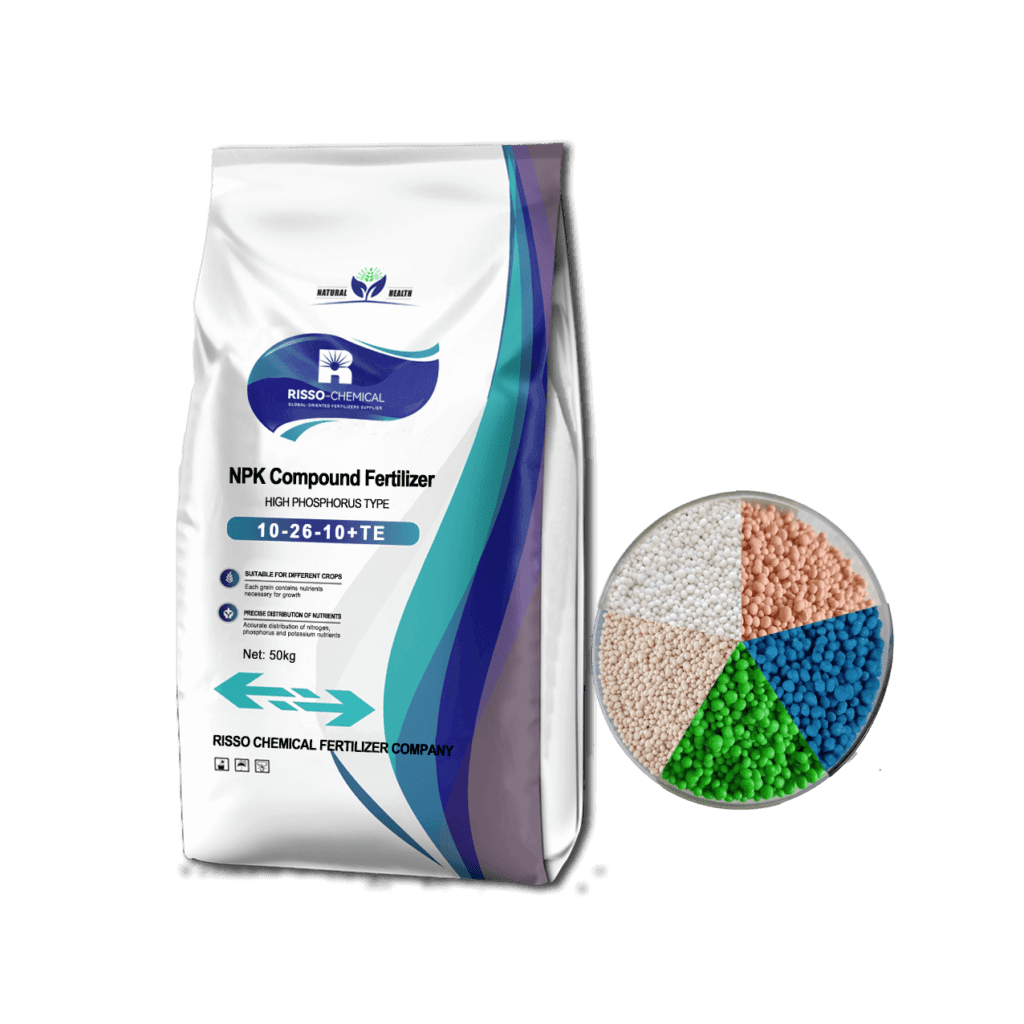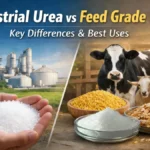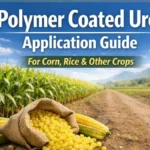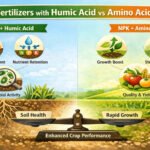Let more growers get greater benefits
How to Choose the Right NPK Fertilizer for Fruit Trees
- Industry News
- September 4, 2016
- 11:23 am
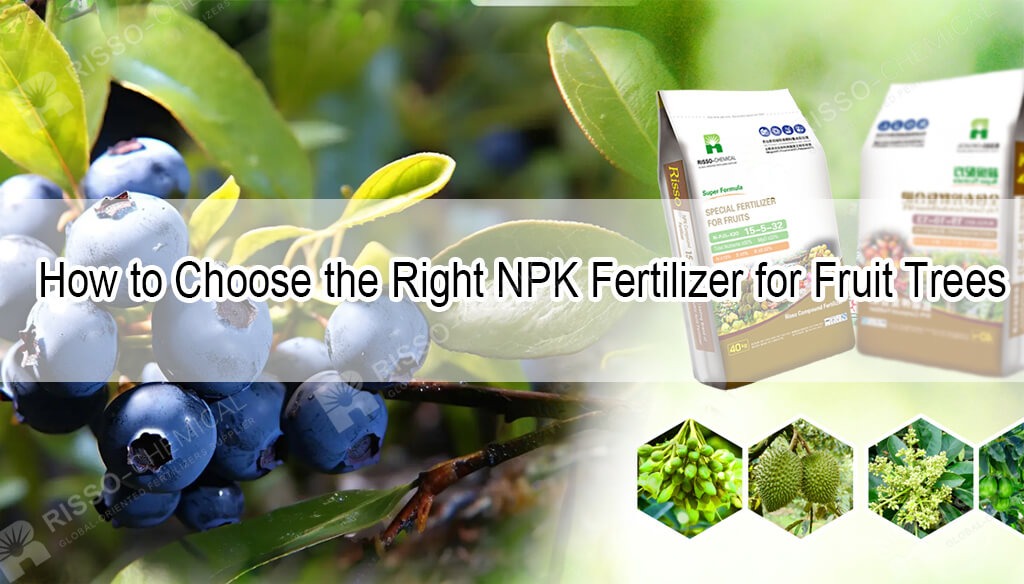

When it comes to growing fruit trees, ensuring that they receive the right nutrients is crucial for healthy growth and a bountiful harvest. Fertilizers, particularly those with balanced NPK (Nitrogen, Phosphorus, and Potassium) ratios, play a key role in providing essential nutrients that trees need at different stages of their life cycle. However, choosing the right NPK fertilizer for fruit trees can be a challenge due to the variety of fertilizers available and the specific needs of different tree species.
In this guide, we’ll walk you through the steps of selecting the most appropriate NPK fertilizer for your fruit trees to ensure their optimal health and productivity.
List of Contents
Understanding NPK and Its Importance for Fruit Trees
The three essential macronutrients—Nitrogen (N), Phosphorus (P), and Potassium (K)—each serve a different function in the growth and development of fruit trees:
- Nitrogen (N)): Promotes lush, leafy growth, essential for photosynthesis.
- Phosphorus (P): Supports strong root development and plays a crucial role in flower and fruit production.
- Potassium (K): Enhances overall tree vigor, disease resistance, and fruit quality, aiding in carbohydrate metabolism and water regulation.
The NPK ratio on a fertilizer label indicates the percentage of these nutrients. For instance, a 16-16-16 fertilizer contains 16% nitrogen, 16% phosphorus, and 16% potassium. Different fruit trees have varying needs depending on their growth stage, type, and soil conditions, so it’s important to select the right NPK blend.
Factors to Consider When Choosing NPK Fertilizer
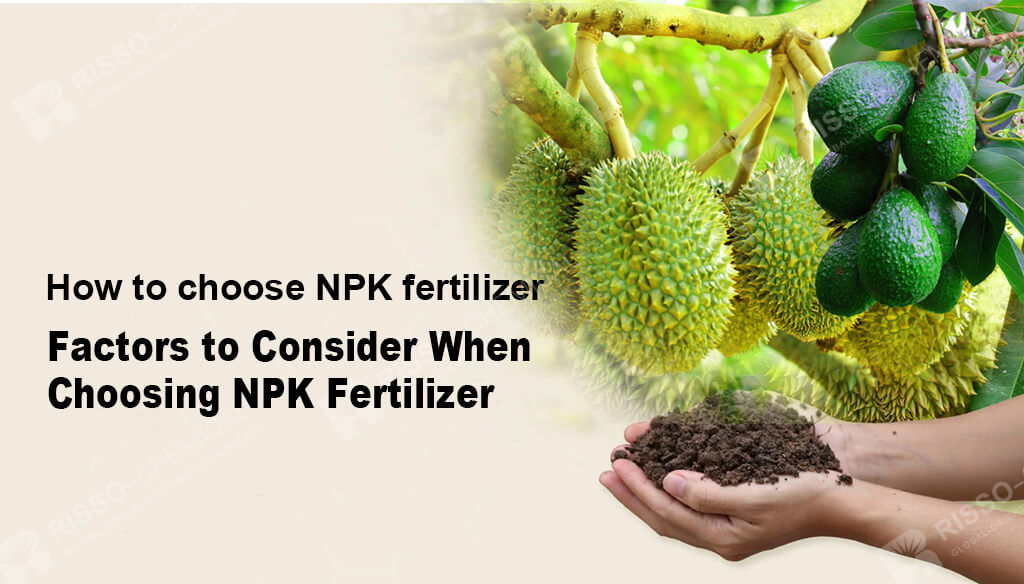

1. Soil Testing
Before selecting a fertilizer, conduct a soil test to determine its current nutrient levels. Soil tests reveal if there are any deficiencies or imbalances that need correction. If the soil is already rich in certain nutrients, adding a fertilizer with a high concentration of that nutrient may lead to over-fertilization, which can harm the tree. For example, soils high in nitrogen may not require a nitrogen-heavy fertilizer, while phosphorus-deficient soils will benefit from an NPK fertilizer with a higher phosphorus ratio, like 10-52-10.
2. Type of Fruit Tree
Different fruit trees have varying nutritional needs. Here are some general guidelines for common fruit trees:
- Citrus trees (e.g., oranges, lemons): Typically benefit from a balanced NPK ratio of around 20-10-10 to encourage leaf growth and fruiting.
- Apple and pear trees: Prefer fertilizers with more potassium, such as 5-15-15, which supports root health and fruit quality.
- Stone fruit trees (e.g., peaches, plums): Need a balanced approach with NPK ratios like 10-10-10, especially in the early years to promote both growth and fruiting.
- Berry plants (e.g., blueberries, raspberries): May require a higher phosphorus content during the fruiting season to enhance fruit production, such as 10-26-10.
Consulting with a local horticulturist or your agricultural extension service can also help tailor the fertilizer choice to the specific needs of your region’s fruit trees.
3. Tree Growth Stage
- Young Trees (1-3 years): These trees are focused on establishing strong roots and growing leaves. An NPK fertilizer with a higher nitrogen content, like 20-10-10, can be used to promote healthy vegetative growth during this period.
- Mature Trees (4+ years): Mature trees shift their energy toward fruit production. For these trees, a fertilizer with a balanced or higher potassium ratio, such as 10-10-20 or 5-10-20, will help enhance fruit size, flavor, and overall tree resilience.
4. Fertilizer Formulation: Organic vs. Synthetic
- Organic fertilizers release nutrients slowly over time and improve soil structure. They are ideal for long-term tree health and sustainability. Organic options include compost, manure, and fertilizers made from bone meal or fish emulsion, typically containing lower concentrations of NPK.
- Synthetic fertilizers provide a quick nutrient boost and are formulated with specific NPK ratios. They are great for addressing immediate nutrient deficiencies but should be used with care to avoid over-application, which can lead to nutrient runoff or root burn.
Recommended NPK Fertilizer Ratios for Fruit Trees
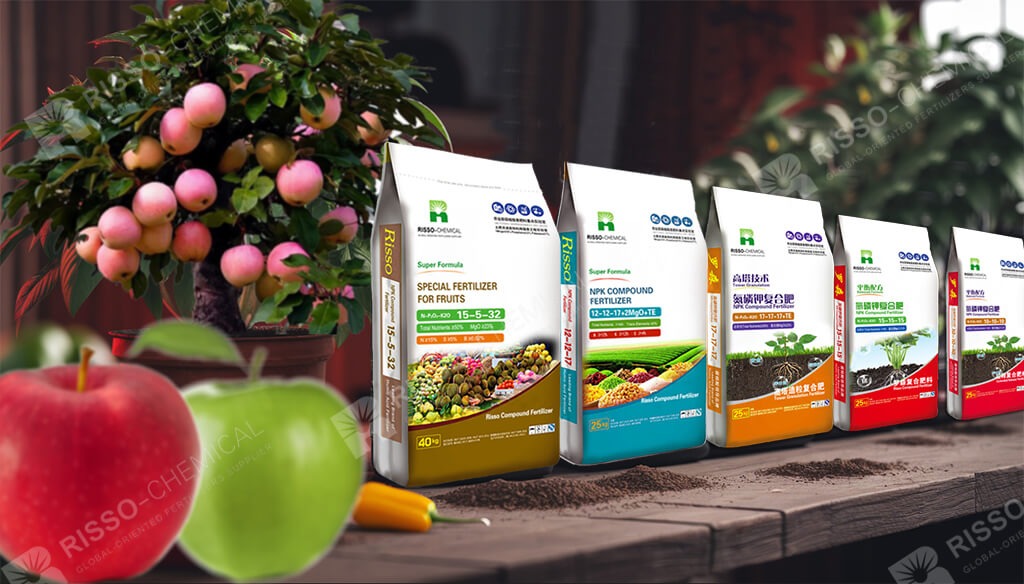

Here are some common NPK ratios recommended for various stages of fruit tree growth:
- 10-10-10: A balanced fertilizer suitable for a wide variety of fruit trees, especially for early-stage growth and general maintenance.
- 5-10-10: Ideal for mature trees that need more phosphorus and potassium to promote strong root systems and fruit production.
- 10-52-10: High-phosphorus fertilizer, perfect for trees that need a boost in flowering and fruiting stages.
- 20-10-10: High-nitrogen fertilizer, beneficial for young trees that are in their vegetative growth phase.
Always follow the manufacturer’s recommendations for application rates and timings, as too much fertilizer can lead to nutrient imbalances, overgrowth of foliage, and poor fruit quality.
Application Tips for NPK Fertilizers
- Timing: Apply fertilizer in early spring when trees begin to wake from dormancy, and again in late spring or early summer, depending on the specific nutrient needs. Avoid late-season fertilization, as this can encourage new growth that is vulnerable to frost damage in colder climates.
- Method: Spread the fertilizer evenly around the tree’s drip line, the area under the outer edge of the branches where water naturally drips off. Water thoroughly after applying to help the nutrients reach the root zone.
- Frequency: Fertilize young trees 2-3 times during the growing season, while mature trees may only need to be fertilized once a year.
Conclusion
Choosing the right NPK fertilizer for your fruit trees is essential for ensuring their health and maximizing their fruit production. By considering factors such as soil composition, tree type, and growth stage, you can select the most appropriate NPK ratio to meet your tree’s specific needs. Whether you opt for organic or synthetic fertilizers, remember that proper application techniques and timing will enhance the effectiveness of the fertilizer and promote a healthy, productive orchard.
For more information on high-quality NPK fertilizer, including balanced and specialized formulas like those offered by Risso Fertilizers, visit our product catalog or contact us for personalized recommendations. Your fruit trees will thank you with bigger, better harvests!
Fertilizer Related Products
If you want to know other questions about Fruit tree fertilizer or NPK fertilizers , please contact us and we will provide professional answers.
- Article
What will you get when touch?
✔ Quick & helpful reply within 6 hours.
✔ Tailored solutions for your project.
✔ One-stop product, tech, market
TRENDING
Want to find a China fertilizer manufacturer?
Risso will be your best choice; send us your request for your fertilizer details requirement
TAIAN RISSO CHEMICAL FERTILIZER CO.,LTD.
- Address: High-tech Development Zone, Taian City, Shandong Province
© Copyright 2017 RISSO CHEMICAL. All Rights Reserved.



